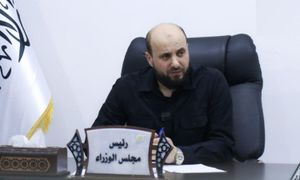Birmingham Parents Jailed for Child Neglect and Death
The tragic saga of Abiyah Yasharahyalah, whose short life was marked by extreme neglect, has ended with substantial prison sentences for his parents, Tai and Naiyahmi Yasharahyalah, who failed to provide the most basic care for their child. On December 12, 2024, the couple was sentenced to 24-and-a-half and 19-and-a-half years respectively, after being found guilty of causing or allowing the death of their three-year-old son.
Abiyah was discovered buried in their garden almost three years after his death, which the couple had failed to report. The court heard Abiyah suffered excruciated pain due to severe malnutrition and other health issues, including rickets, anaemia, stunted growth, and multiple bone fractures. Despite his deteriorated condition, his parents attempted to treat him with unconventional remedies such as garlic and ginger rather than seeking medical attention.
During the investigative process, police found Abiyah's remains on December 2022, behind their former home on Clarence Road, Handsworth, Birmingham. His death, thought to have occurred between December 2019 and January 2020, was not registered because the parents claimed it was against their beliefs.
This shocking case unveils the Yasharahyalah family's peculiar lifestyle, which the parents devised after isolting themselves from mainstream society and adhering to their unique belief system. They had rejected Western medicine and lived on their own rules, creating what they called the "Kingdom of Yasharahyalah". They even fashioned their own passports and styled themselves as sovereign beings, believing their decisions were justified by their doctrine.
The couple's lifestyle choices and beliefs came at the cost of their son’s life. The court heard how Tai, once studying medical genetics, had adopted conspiracy theories which led him to reject social norms, culminating in both parents prioritizing their convictions over their child's basic health needs. Judge Justice Wall emphasized their failings, remarking, "It is difficult to contemplate worse neglect than what your son suffered." He indignantly highlighted how they had benefited from the NHS for most of their lives yet denied their child similar care.
After discovering Abiyah's body, inquiries revealed extensive medical issues had gone unchecked, leading specialists to conclude he would have experienced significant pain due to untreated ailments. Medical experts corroborated the couple's diet—primarily consisting of nuts, soya milk, and dried fruits—was grossly inadequate, resulting in Abiyah's malnourished state correspondingly with his death from respiratory illness.
Abiyah's remains were found wrapped and embalmed, which points to the couple's efforts to appease their belief system even after his demise. It was revealed they kept his body for eight days before burying him, adhering to rituals they believed would aid his reincarnation. The couple’s beliefs turned toward the absurd as they classified this grisly burial not as criminal neglect but as part of their cultural practices.
Through the testimony during the eight-week trial, jurors were confronted with the heartbreaking details of how Abiyah was neglected, culminating in overwhelming conclusions about the tragic circumstances surrounding his death. Detectives stated such heartbreaking cases remarkably stand out, unfurling deep-rooted issues about child care, societal detachment, and the dire consequences of entangled beliefs overriding parental responsibilities.
Despite their defense framing their actions as unintentional, claiming they genuinely believed they could heal their son with natural remedies, the jury unanimously asserted their culpability for the horrifying neglect leading to Abiyah's death. The prosecution characterized this as not merely passive neglect but active refusal to seek needed medical assistance, which led to Abiyah's agonizing last breaths, endured without help and compassion.
With this dreadful chapter, the Yasharahyalah family saga raises fundamental questions about community vigilance over child welfare, the desperate need for education around effective parenting, and the society's role in safeguarding the wellbeing of children belonging to recluse families. The public’s demand for accountability surrounding such tragic losses continues to surge, emphasizing the need for systemic changes to prevent future occurrences of similar neglect.



